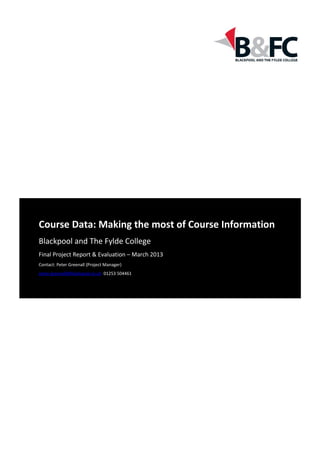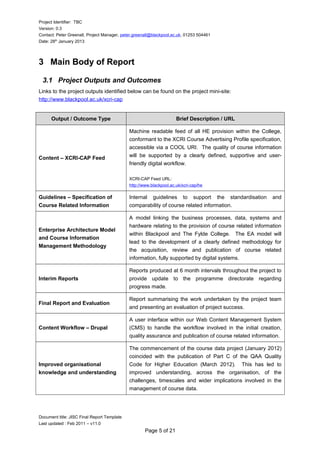This document provides a final report on the Course Data project at Blackpool and The Fylde College. The project aimed to improve internal processes for managing course information and create a machine-readable feed of course data using the XCRI standard. Key outcomes included developing a content management system with workflows for updating and approving course information, mapping data between systems, and publishing an XCRI feed. The project helped enhance understanding of course data management and position the college well to share reliable information externally.




















